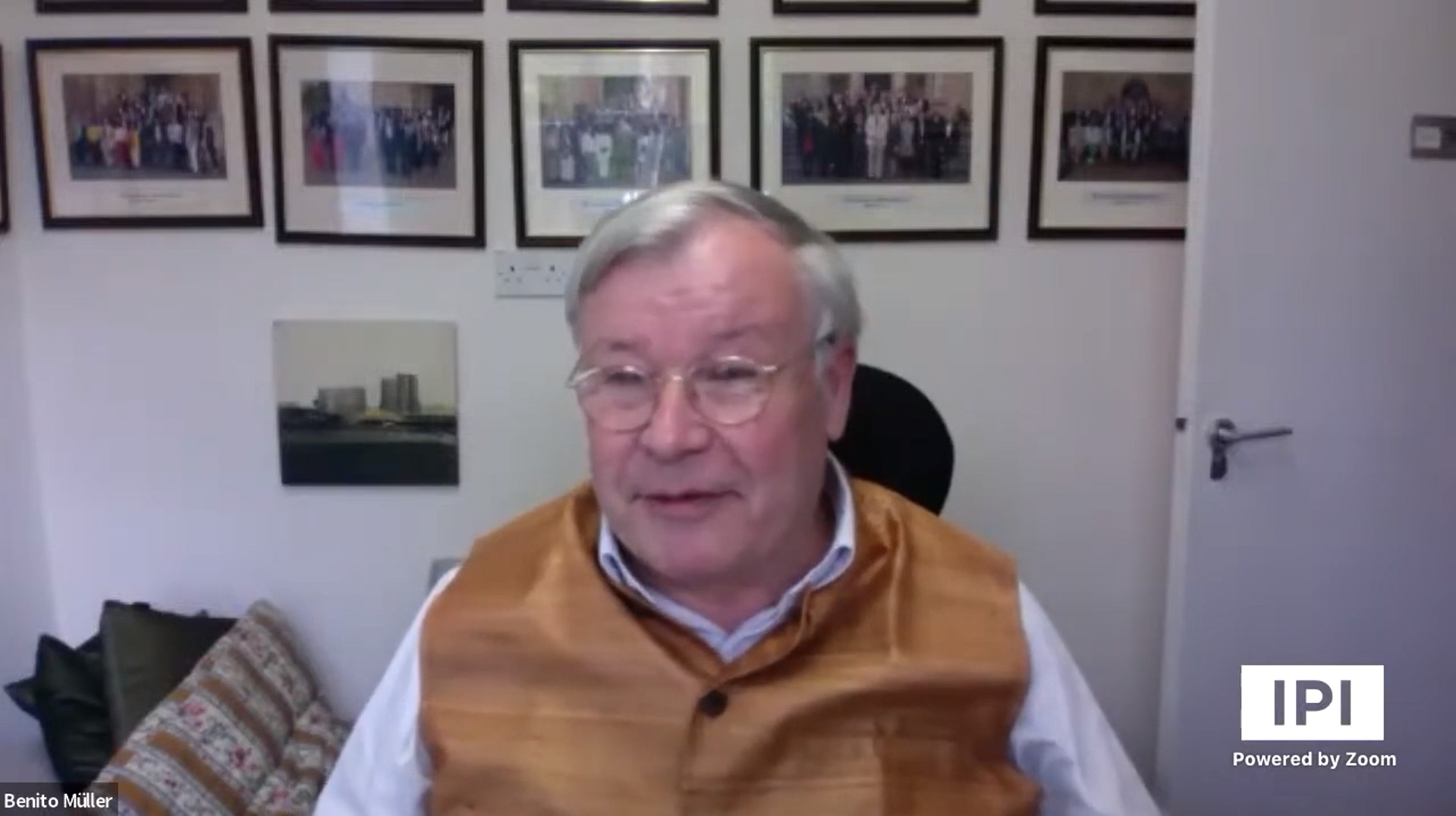
During a virtual panel discussion organised by the International Peace Institute, ecbi Director Benito Müller presented on the potential of climate levies to fund climate action, particularly loss and damage. The event, Mobilizing Finance for Climate, Inequality, and Sustainable Development: New Taxes and Levies, took place on 18 June. During the event, Zeid Ra’ad Al Hussein, IPI President and CEO, provided welcoming remarks and the event was moderated by Jimena Leiva Roesch, Director of Global Initiatives, IPI.
In his presentation, Müller mentioned discussed the proposal for aviation and shipping levies to fund loss and damage, noting such levies were not under the remit of the UNFCCC, but rather under the International Civil Aviation Organization (ICAO), while any levy on shipping would fall under the International Maritime Organization (IMO). However, he emphasised that these organisations would want to keep the revenue to green their own sectors and not cede the money raised for loss and damage and, thus, a top-down approach, that is a global tax or treaty, would be unworkable. Thus, he reiterated his belief that a country-driven approach was the most likely to be implemented, and that countries could begin collecting taxes now. He mentioned growing traction for Climate Solidarity Levies, which would be introduced by a Climate Solidarity Alliance, and earmarked as an innovative source of funding for responding to loss and damage from the adverse impacts of climate, particularly through the new multilateral Loss and Damage Fund.
Müller said that countries could set up domestic loss and damage trust funds for the money raised through levies, which could then be used domestically or for the international Loss and Damage Fund. He noted that if developing countries choose to contribute to the Loss and Damage Fund, developed countries could pay them back with a bonus. Regarding concerns about potential impacts on tourism, he said that based on the example of the French Solidarity Levy, there had not been any impact on air passenger travel and that we are only talking about a USD 5 levy.
The event also highlighted the possibility of new global taxes to address, among others, inequality, poverty, and climate action. Levies on shipping, fossil fuel production, air travel, and financial transactions have also been identified as ways to reform the international financial architecture. Barbados, France, and Kenya have launched an International Tax Task Force on climate-related levies to judge the viability of these and other options for global taxes. Brazil, in its role as G20 Chair, has promoted the idea of a “billionaire tax” on extreme wealth. In addition to Benito Müller, speakers included: Tina Stege, Climate Envoy for the Marshall Islands; Laura Carvalho, Global Director of Equity, Open Society Foundations, and Associate Professor of Economics, University of São Paulo; Pascal Saint-Amans, Adviser to the International Tax Task Force; and Michael Franczak, Research Fellow, IPI.
Click here for a webcast of the event and see below for the presentation by Professor Müller.
